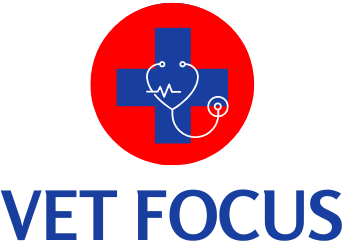Veterinary school is a challenging yet fulfilling journey for those who aspire to care for our furry, feathered, and scaly friends. In Veterinary schools, one of the pivotal aspects of your education is gaining a comprehensive understanding of the medications used in the treatment of animals. In this blog post, we will unveil a list of must-know medications that will form the cornerstone of your practice as a future Veterinarian.

-
Analgesics: Just as in human medicine, pain management is a critical component of veterinary care. Veterinary students must familiarize themselves with common analgesics such as meloxicam, tramadol, and opioids like buprenorphine. You will learn to assess and administer these medications to ensure the comfort and well-being of your animal patients.
-
Antibiotics: Infectious diseases are a significant concern in veterinary medicine. Understanding antibiotics like amoxicillin, doxycycline, and enrofloxacin is crucial. You'll need to grasp their indications, potential side effects, and proper dosages to prevent the spread of infections in animals.
-
Parasiticides: Dealing with internal and external parasites is a routine part of veterinary practice. Medications like ivermectin, fenbendazole, and flea/tick preventatives are indispensable tools for maintaining the health of pets. Learning about these drugs and their safe use is essential for protecting animals from parasites.
-
Anesthetics: Veterinarians often perform surgeries and procedures that require anesthesia. Becoming proficient with medications like isoflurane, propofol, and lidocaine is essential for ensuring the safety and comfort of animals undergoing medical interventions.
-
Corticosteroids: Corticosteroids like prednisolone and dexamethasone are used to treat a range of inflammatory and immune-mediated conditions in animals. Veterinary students must learn about these medications and their potential side effects when managing various diseases.
-
Heartworm Preventatives: Heartworm disease is a serious threat to dogs, and preventive medications like ivermectin and milbemycin oxime are essential in protecting pets from this potentially fatal condition. Understanding the importance of heartworm prevention is vital in your veterinary education.
-
Non-Steroidal Anti-Inflammatory Drugs (NSAIDs): NSAIDs like carprofen and deracoxib are used to manage pain and inflammation in animals with conditions such as arthritis. Veterinary students should be proficient in the administration and monitoring of these medications for optimal patient care.
-
Antiemetics: Nausea and vomiting are common symptoms in pets. Medications like maropitant and ondansetron help manage these issues and improve the comfort of animals undergoing various treatments.
-
Antifungals: Fungal infections can affect both pets and livestock. Medications like fluconazole and terbinafine are crucial in treating these conditions. Knowing when and how to use these antifungal agents is an essential part of your veterinary education.

For additional recommendations and guidance about veterinary science as well as practice, Kindly visit our website thevetfocus.com
Also explore Vet Focus's "Flashcards and Quiz Bundle", which includes Veterinary Pharmacology, Equine Health, and Diseases and Conditions. These bite-sized bursts of knowledge are designed to sharpen your learning in the field of veterinary medicine.


